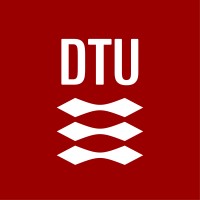If you are looking to advance your research in computational social science and urban mobility, this position offers the opportunity to contribute to an international research effort at the intersection of data science, mobility, and urban planning.
Based at DTU, you will work with high-resolution mobility and urban perception data to study how people navigate cities and how transport infrastructure, amenities, and neighbourhood characteristics shape mobility patterns. As part of the COLINE project, you will collaborate with leading European research groups and contribute to the development of scalable methods for analyzing urban movement and accessibility. The position also includes occasional engagement with policy stakeholders to help ensure research findings are translated into actionable insights.
Responsibilities and qualifications
Your overall focus will be to develop and apply computational methods to analyze and model urban mobility patterns using large-scale data.
You will be part of the COLINE project, an international collaboration aimed at understanding how accessibility, mobility, and urban form interact in European cities. The position is based at DTU Compute, and involves both methodological development and applied analyses, with occasional collaboration with policy partners in participating cities.
Your primary tasks will be to:
- Develop scalable methods for analyzing GPS-based mobility traces
- Integrate multimodal transport data (e.g. GTFS, bike sharing) with mobility flows
- Model accessibility and transport mode choice across urban contexts
- Quantify spatial patterns of mobility, segregation, and amenity access
- Collaborate with international research teams and share methods across cities
- Contribute to reproducible research through well-documented code and open data
- Support occasional communication of findings to city-level stakeholders
We are looking for candidates with:
- A PhD in computational social science, data science, physics, network science, or a related field
- Strong programming skills in Python and experience working with large datasets
- Experience with geospatial analysis and/or mobility data
- A solid background in quantitative modeling and statistical analysis
- Ability to work independently and collaboratively in an interdisciplinary team
We offer
DTU is a leading technical university globally recognized for the excellence of its research, education, innovation and scientific advice. We offer a rewarding and challenging job in an international environment. We strive for academic excellence in an environment characterized by collegial respect and academic freedom tempered by responsibility.
Salary and terms of employment
The appointment will be based on the collective agreement with the Danish Confederation of Professional Associations. The allowance will be agreed upon with the relevant union.
The period of employment is 2 years. Starting date is 1 October 2025 (or according to mutual agreement).
The workplace is DTU Lyngby Campus.
You can read more about career paths at DTU here.
Further information
Further information may be obtained from Laura Alessandretti, [email protected].
You can read more about DTU Compute at www.compute.dtu.dk/.
If you are applying from abroad, you may find useful information on working in Denmark and at DTU at DTU – Moving to Denmark.
Application procedure
Your complete online application must be submitted no later than 3 September 2025 (23:59 Danish time). Applications must be submitted as one PDF file containing all materials to be given consideration. To apply, please open the link "Apply now", fill out the online application form, and attach all your materials in English in one PDF file. The file must include:
- Application (cover letter)
- CV
- Academic Diplomas (MSc/PhD – in English)
- List of publications
Applications received after the deadline will not be considered.
All interested candidates irrespective of age, gender, disability, race, religion or ethnic background are encouraged to apply. As DTU works with research in critical technology, which is subject to special rules for security and export control, open-source background checks may be conducted on qualified candidates for the position.
DTU Compute
DTU Compute – Department of Mathematics and Computer Science – is an internationally recognised academic environment with over 400 employees and 10 research sections. We broadly cover digital technologies within mathematics, data science, computer science, and computer engineering, including artificial intelligence (AI), machine learning, internet of things (IoT), chip design, cybersecurity, human-computer interaction, social networks, fairness, and data ethics. Our research is rooted in basic research and centres on mathematical models of the physical and virtual world, as a basis for the analysis, design, and implementation of complex systems. We focus on ensuring that our research results contribute to creating a better society by supporting areas such as health, green transition, energy supply, and life science. We collaborate with universities, public and private organisations, and companies in Denmark and abroad, and through DTU’s startup ecosystem, we encourage innovation and entrepreneurship. We have a strong ethical, human, and sustainable approach that ensures integrity in our work. Therefore, we strive for and take responsibility for driving the democratisation of digital technologies, so that everyone has the opportunity to actively participate in the development, and we ensure a continued open, democratic, and inclusive society for the benefit of all. At DTU Compute, we value diversity, inclusion, and a flexible work-life balance. Read more about us at www.compute.dtu.dk.
Technology for people
DTU develops technology for people. With our international elite research and study programmes, we are helping to create a better world and to solve the global challenges formulated in the UN’s 17 Sustainable Development Goals. Hans Christian Ørsted founded DTU in 1829 with a clear mission to develop and create value using science and engineering to benefit society. That mission lives on today. DTU has 13,500 students and 6,000 employees. We work in an international atmosphere and have an inclusive, evolving, and informal working environment. DTU has campuses in all parts of Denmark and in Greenland, and we collaborate with the best universities around the world.
